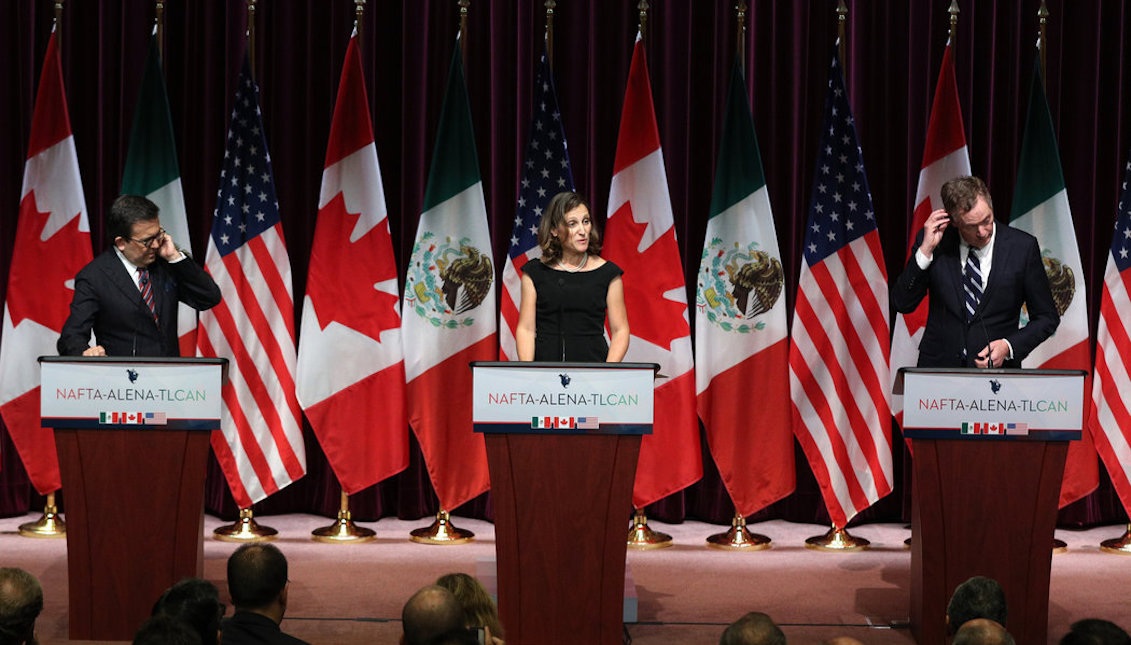
Canada arrives last to Trump's new NAFTA trade treaty
Canada and the United States have managed to agree at the last minute on the negotiations of the North American Free Trade Agreement, giving President Donald…
Donald Trump has once again managed to get away with it.
Since his presidential campaign was framed - among other things - by the constant criticism of the North American Free Trade Agreement (NAFTA), President Trump has submitted the joint agreement with Mexico and Canada to forced negotiations for more than a year, a belabored process that now seems to have come to an end.
In the early 1990s, the United States and Canada already had a bilateral Free Trade Agreement that was promoted as "a path of sustained economic growth" known as NAFTA. In the middle of a crippling crisis, Mexico decided to get involved, signing its part of the agreement on Dec. 17, 1992.
But Trump's criticism since the beginning of his foray into politics has been the "exploitation" of American benevolence when doing business with international counterparts.
He then proposed bilateral negotiations that would allow him to be in a position of power when reaching an agreement "due (to the size of the United States) and its capacity to dictate terms," according to Tyler Cowen in his column for Bloomberg. According to Cowen, the U.S. president's theory driving the renegotiation of NAFTA "makes sense" because "multilateral agreements require the approval of too many parties, take too much time to negotiate and end up diluted."
Apparently, that was exactly what the president sought to avoid.
After Mexico and the United States reached an agreement in August to sign new guidelines before the inauguration of the new Mexican president, the bilateral negotiations with Canada were concluded just a month later.
RELATED CONTENT
The media reported on Monday that Canada was joining the agreement with its neighbors on Sunday night, just a few minutes before the expiration of the deadline granted by the United States.
The country's trade representative Robert Lighthizer and Canadian Foreign Minister Chrystia Freeland said in a joint statement that "today, Canada and the United States reached an agreement, alongside with Mexico, on a new, modernized trade agreement for the 21st century: the United States-Mexico-Canada Agreement (USMCA).”
As the BBC reported, the agreement involves "more than a trillion dollars of operations" among the three countries, and its new version "will give our workers, farmers, ranchers, and businesses a high-standard trade agreement."
Although the congresses of each of the countries will have 60 days to review and approve the new agreement according to their interests, the changes that are now being proposed are "the formation of independent binational panels" by each country in situations in which they feel “they are the victim of unfair trade decisions by another member of the agreement." In the case of automobiles, each vehicle that is exported without tariffs must be produced 75 percent within one of the countries. Finally, the agreement as a whole will last for 16 years but it must be reviewed every six years.
The "victory" of the president is then evident in the achievement of his promises and wishes - which will be eternalized by the new name of the agreement - and the fact that the new guidelines "will make it more difficult, or at least more expensive, for manufacturers of automobiles to use parts from outside of North America, especially from China," explained the BBC's economics correspondent, Andrew Walker.
The observation is an indicator that this most recent trade agreement could be another move in an economic war with the Asian country that continues to escalate.











LEAVE A COMMENT: